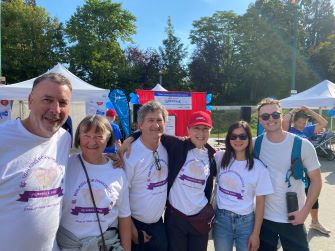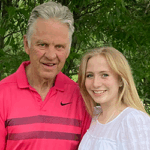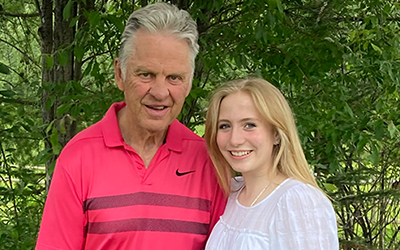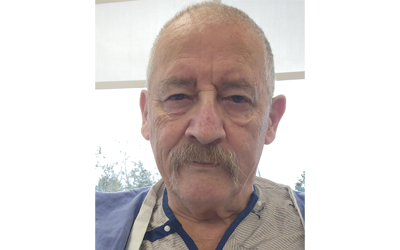Until a few years ago, Catherine Pezarro was a career person with a highly active lifestyle. She enjoyed a variety of activities, from regular running, skiing, and yoga sessions, to trying sports like tennis and figure skating. Summer days were spent cycling and swimming at the beach with her husband. On the career side of life, she had a rewarding job as a Director of Human Resources at the University of British Columbia, where she was supported by a great team.
Things started to change in the spring of 2022. “I started experiencing a strange, heavy sensation in my left hand,” Catherine recalls. “I couldn’t type as quickly with that hand as I used to, and I was clumsy when picking up small objects with my fingers.” Over that summer, she also experienced burnout at work, when she had previously coped well with challenges. After initial treatment with a physiotherapist, she was referred to a neurologist. The neurologist conducted several tests and examinations, and eventually gave Catherine her diagnosis of Parkinson’s disease (PD).
Being only in her early 50s, this diagnosis came as a shock. Catherine describes the feeling she had as “numb” and “surreal”. Her husband, family, and friends were in disbelief as well, believing she was “too young, too active, and too healthy to have Parkinson’s.”

She now believes it was important for her to feel the grief she did when she was first diagnosed. “It’s not easy, but it’s better to feel the pain and sadness than to not face it or deny it – if you want to reach acceptance and move forward,” she says.
Since her diagnosis, she has adapted her lifestyle and mindset. She had to step back from work as it became more difficult to manage. This was a loss that she felt deeply and spurred her into finding new purpose. Now, she finds fulfilment taking part in Parkinson’s research studies and programs through the Canadian Open Parkinson Network and the Pacific Parkinson’s Research Centre. She is inspired to contribute to the Parkinson’s community by helping in efforts to understand the causes of PD and helping people with PD live well.
In her own daily life, she maintains a routine to stay as active as possible in all aspects to live well with PD. She aims to spend at least two hours every day being physically active, enjoying hobbies such as pickleball that keep her socially engaged as well. During afternoons, she takes time to rest and connect with friends. Another activity that she enjoys is speech arts, which she finds helpful as it combines speech, movement, and improvisation. She is currently creating a new comedic monologue series about life with Parkinson’s, called Moving Funny.
Humor has been one of the ways she finds acceptance, an important part of her Parkinson’s journey so far. “It’s important to be kind to myself and to accept that I can’t do some of the things I used to, and that some things will take longer than they used to.”

Connecting with other people with PD through support groups and exercise classes has been essential to maintaining a network of support and positivity. On the Young Onset PD Support Group, she says, “Being part of this group has helped me to feel less alone, and learn from others about the things they do to manage and live well with PD.”
“Being grateful, committing to living my best life and to helping other people affected by PD has made a big difference,” says Catherine. She encourages others in the community to keep learning and trying new things whenever they can, while making sure to be careful in choosing reputable sources of information to follow.







